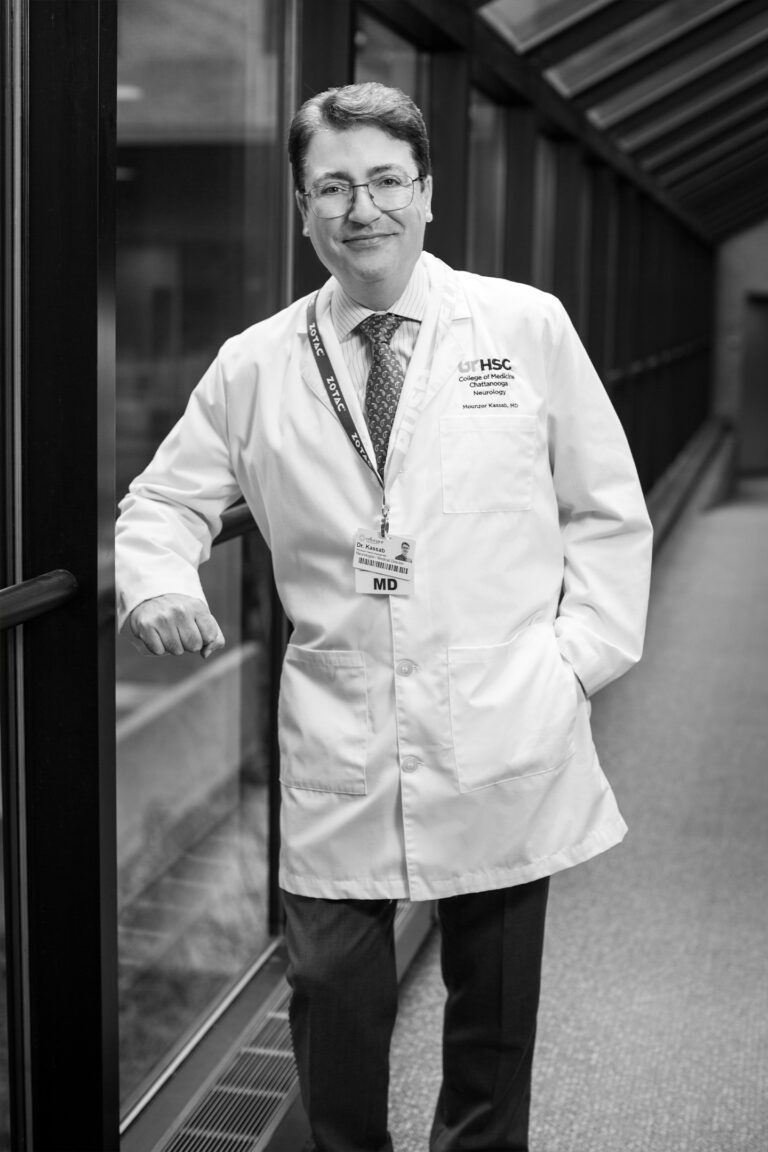Erlanger Neurology
Seeing Positive Outcomes
From a young age, Dr. Mounzer Yassin-Kassab had the innate desire to help people. “I wanted to have a lasting impact, and I especially have a strong desire to help patients from all socioeconomic backgrounds, including a great deal of mission work,” he adds. As medical director of Erlanger Neurology, Dr. Yassin-Kassab is able to do just that, working against the clock to help patients who have suffered an acute stroke. Although, Dr. Yassin-Kassab is quick to point out that his work is made possible in part by the skilled team at Erlanger. “The stroke team is made up of physicians representing several specialties who work in concert to provide the most comprehensive care available,” he shares. “Together, we determine the best course of treatment that will lead to the most positive outcomes.”
I love being able to help patients when it matters most.”
My Credentials
Medical Degree:
Tishreen University Medical School – Latakia, Syria
Fellowship:
Clinical Neurophysiology and Vascular Neurology, UT Southwestern Medical Center – Dallas, TX
Certifications:
Board-Certified in Neurology, Clinical Neurophysiology, Vascular Neurology, and Epilepsy
Recognitions:
Member, American Academy of Neurology
Member and Fellow, American Epilepsy Society
Chairman of the Department of Neurology, University of Tennessee College of Medicine Chattanooga
American Academy of Neurology’s Best Educator in Neurology Award
My Specialties
Neurology/Neurohospitalist
Stroke
Epilepsy


1. What is your best advice for patients?
Have trust in your physician and remember that outside resources (like the internet) have a lot of misleading information.
2. What is one of your happiest professional moments?
When I helped reverse the devastating effects of a stroke when treating a 4-year-old child in Lansing, Michigan. Our team used a clot-dissolving drug called tPA, which is quite potent and only approved for patients who are 18 and older. After consulting with the child’s family and thinking of my own son, we decided it was the best course of treatment. Minutes later, the signs of the stroke started to reverse, and the patient regained his strength.
3. Why have you chosen this field of specialty?
I chose to go into neurology as I was always fascinated with the way the brain works. All of your organs are commanded by and serve the brain, and if diseases of the brain aren’t treated quickly and appropriately, there can be devastating effects.
4. What would you consider to be your main strengths?
My dedication and commitment to my patients. I insist on adopting a schedule that allows extra time for any patient who needs it.
5. What is your philosophy when it comes to the care of your patients?
I received wise words from a mentor years ago: “Listen to your patient, and they’ll tell you what’s wrong with them.” Listen to them, and try to share in and understand their suffering.
- 423.778.9001
- 979 East 3rd Street, Suite C-830, Chattanooga, TN 37403
- erlanger.org/stroke

